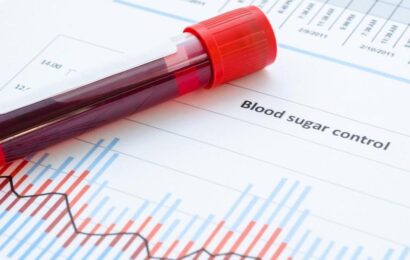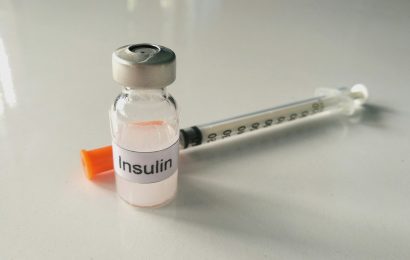I’ve been writing for Diabetes Self-Management for quite some time now, and I also write for other publications and Web sites. In addition, as I’ve previously mentioned, I’m a dietitian and certified diabetes educator.
It seems that, no matter what topic I write about or what questions I answer, the same type of question frequently comes up: “I just found out that I have Type 2 diabetes. What do I do?” Sometimes, the question is worded a little differently, and sometimes it’s more specific (for example, “what can I eat?”). These are excellent questions, of course. But they make me realize that, despite the wealth of diabetes information that’s out there, we’re not reaching everyone.
Almost 26 million people in the US have diabetes. What can we do to inform and inspire them? I may be one person, but I know that even if I reach a small handful of people and help them, I’ve done part of my job. So this week, the posting is for those of you who are either new to diabetes or who may have had diabetes for a while and are now ready to do something about it.
First Things First
Your doctor has just told you that you have diabetes. Maybe he has handed you a booklet and a blood glucose meter, plus a prescription for diabetes pills, and has sent you on your way. Or maybe he referred you to a diabetes educator or a diabetes class, but you haven’t had a chance to make an appointment or go to the class. Your head is likely spinning and you may be feeling:
• Scared
• Worried
• Angry
• Sad
• Depressed
Or, maybe it’s no big deal to you. Whatever you’re feeling, let it happen. It’s normal and it’s good for you to let it out. You’ve just been diagnosed with a chronic illness. For now, at least, it’s not going away. You have a right to feel scared, angry, or worried.
Next Steps
It’s also pretty normal for some newly diagnosed people to go into denial mode. “It’s not a big deal,” you think, or “I don’t have time to deal with this just now.” But the reality is, it’s never a good time to get diabetes, and not facing up to it means that when you’re finally ready, it’s going to be that much harder to deal with. Accept that you have diabetes and do something about it now.
A Reality Check
Finding out that you have Type 2 diabetes is quite a bit different than finding out that you have, say, asthma, or even cancer. The good news? Diabetes can be managed, and as we say at Joslin Diabetes Center, you can live a long, healthy life with diabetes. How do we know? Just ask our 50-year and 75-year medalists: folks who have been living with diabetes for more than half a century without complications.
The not-so-good news? It’s up to you to manage it. It’s not your doctor’s job, nor your dietitian’s or diabetes educator’s job, either. They should be helping you, but you have to deal with and manage it at least 95% of the time.
Get Your Team Going
Learn as much as you can about your diabetes. Don’t rely on your doctor to tell you everything, because chances are, they won’t know everything about diabetes. Primary-care providers are not diabetes specialists, and while they’re considered the gatekeepers of your overall health-care, their job isn’t necessarily to teach you the skills that you’ll need. Ask your doctor for a referral to a:
• Dietitian (yes, you really should meet with a dietitian, especially one who specializes in diabetes).
• Diabetes educator (this could be a nurse, dietitian, or pharmacist).
• Diabetes education program (usually, a series of classes to teach you about the various aspects of diabetes self-management, like meal planning, blood glucose monitoring, foot care, and sick-day management).
You may be thinking that you don’t need all of this, but you do. Reading about diabetes on the Internet or buying a diabetes book can be helpful, but you’ll end up with more questions than answers. That’s because diabetes care is very individualized. By the way, insurance will likely cover most aspects of diabetes self-management, but you’ll probably need a referral from your doctor. Call your health-care plan to find out what’s covered. Also, ask your doctor if you need to see specialists, such as an endocrinologist, cardiologist, or podiatrist.
Know Your Numbers
Your diabetes numbers (A1C, blood pressure, LDL cholesterol, microalbumin) are your guide to how well your diabetes treatment plan is working for you. Know what your results are, what your goals are, and how often to get them checked. Don’t forget to have an annual dilated eye exam, and at every doctor visit, take off your shoes and socks to get your feet checked. Don’t be a passive patient; ask questions of your doctor. If your numbers aren’t at goal or your exam results aren’t where you want them, ask why and what you can do about that. Remember: This is your diabetes.
Focus on Your Lifestyle…and Find Support
Many people say that getting diagnosed with diabetes was a wake-up call for them to live a healthier life. Losing a little bit of weight, being more active, making better food choices, and stopping smoking are examples of how positive changes can have a big health impact. No, it’s not easy to make changes. But start with small steps. Get support from your spouse, a friend, your team, or from a counselor, support group, or online community. You don’t have to go it alone because you’re not alone. Finally, don’t be afraid to ask questions and to ask for help. The time is now!




